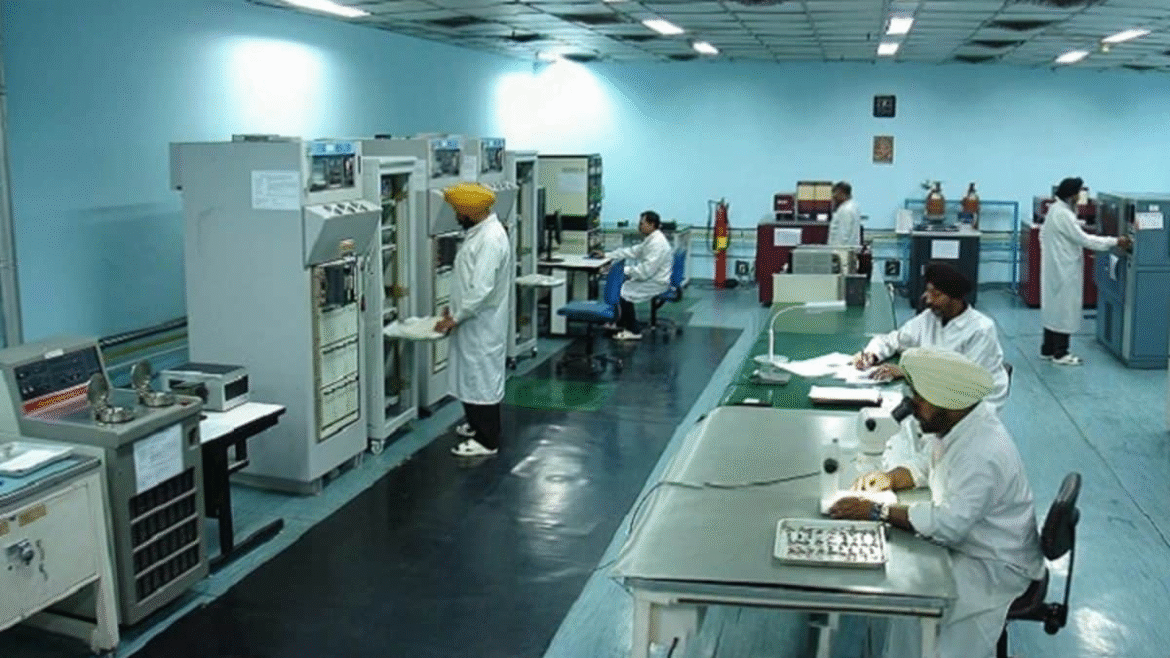AI Generated Summary
- Punjab is set to play a crucial role in India’s rapidly advancing semiconductor industry, following the Union Cabinet’s approval of a major chip manufacturing expansion in Mohali under the India Semiconductor Mission (ISM).
- Union IT Minister Ashwini Vaishnaw described the approval as a “breakthrough after decades of effort,” and reiterated the government’s ambition to see the first “Made in India” chip roll out by the end of this year.
- India aims to elevate the value addition in domestic electronics manufacturing from 22% to 30% in the coming years, strengthening its position as a global semiconductor hub.
Punjab is set to play a crucial role in India’s rapidly advancing semiconductor industry, following the Union Cabinet’s approval of a major chip manufacturing expansion in Mohali under the India Semiconductor Mission (ISM). The announcement, made on August 12, highlights India’s growing ambitions to strengthen self-reliance and global competitiveness in electronics manufacturing.
Investment and Expansion
The new project, spearheaded by Continental Device India Ltd. (CDIL), involves a significant brownfield expansion of its current semiconductor manufacturing facility in Mohali. Backed by an investment of ₹117 crore, the upgraded plant will boost its annual production capacity to over 158 million high-power discrete semiconductor devices, including MOSFETs, IGBTs, Schottky diodes, and transistors made from both silicon and silicon carbide.
National Initiative and Global Position
Punjab’s chip plant is one of four newly approved semiconductor units, joining facilities in Odisha and Andhra Pradesh. Collectively, these projects represent a total investment of ₹4,594 crore and are expected to create over 2,000 skilled jobs across India’s electronic manufacturing ecosystem. The Mohali facility’s products cater to sectors such as electric vehicles (EVs), renewable energy systems, industrial automation, automotive electronics, telecom, and export markets worldwide.
The government’s latest approvals bring the number of chip plants supported under the ISM to 10, with cumulative investments surpassing ₹1.6 lakh crore across six Indian states. India aims to elevate the value addition in domestic electronics manufacturing from 22% to 30% in the coming years, strengthening its position as a global semiconductor hub.
Broader Impact
The Mohali expansion will not only boost local manufacturing but also enhance India’s technological sovereignty in critical sectors such as defence, aerospace, power conversion, and next-generation electronic devices. Officials highlight that the move will help India meet its growing semiconductor demand and ensure its place in the global electronics supply chain.
Union IT Minister Ashwini Vaishnaw described the approval as a “breakthrough after decades of effort,” and reiterated the government’s ambition to see the first “Made in India” chip roll out by the end of this year. The Mohali facility, with its advanced manufacturing technologies, is at the forefront of this new era for Punjab and for India’s semiconductor aspirations.




